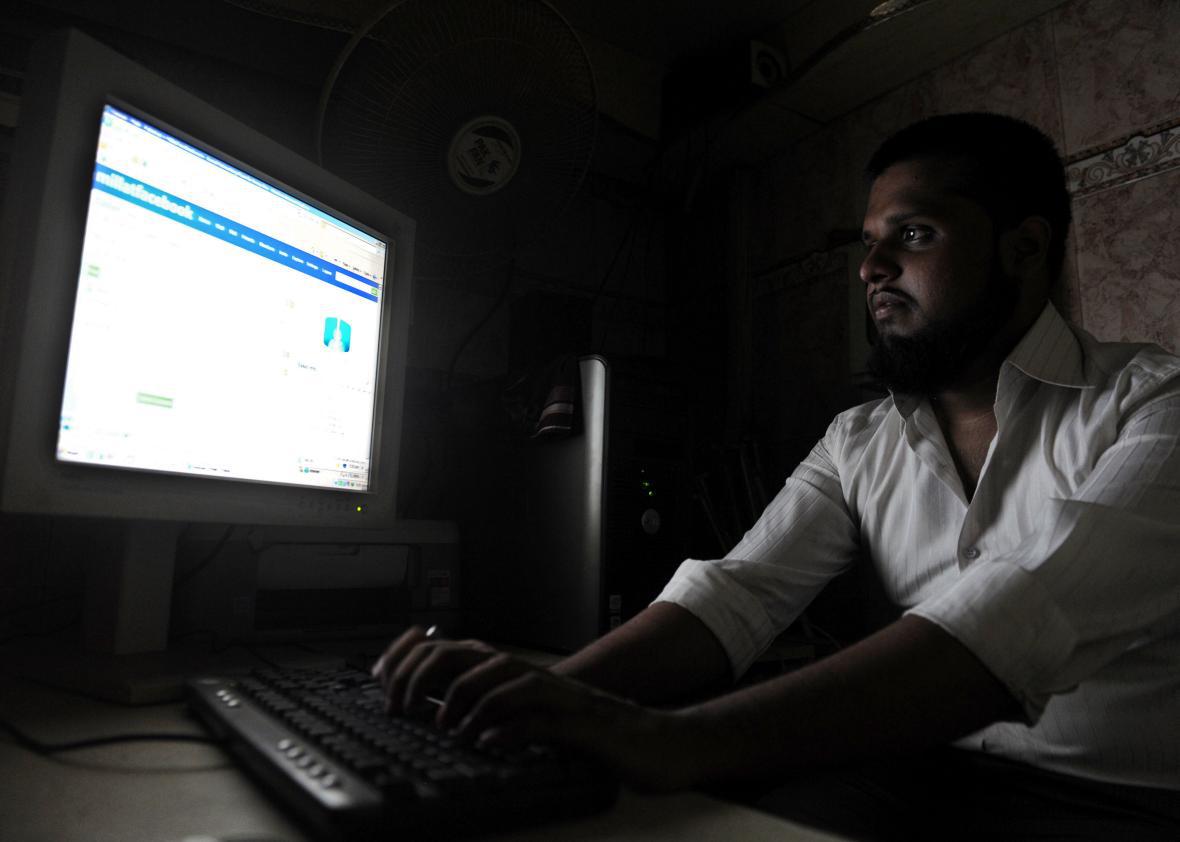In an unprecedented move, a court in Pakistan sentenced a man to death this week for posting blasphemous content on Facebook. Although death penalties in blasphemy cases are common, this is first time social media has been used as evidence in such a trial in the country.
A court in the Pakistani city of Bahawalpur sentenced 30-year-old Taimoor Raza to death for posting blasphemous statements about Prophet Mohammed and his family on the social network. While the contents of his Facebook post are yet to surface, Raza’s brother Waseem Abbas defended his innocence to the Guardian on Sunday. “My brother indulged in a sectarian debate on Facebook with a person, who we later come to know, was a [counter-terrorism department] official with the name of Muhammad Usman,” Abbas told the British newspaper.
Blasphemy cases in Pakistan frequently lead to death sentences that are carried out. In fact, mere allegations can lead to public lynchings. In April, Mashal Khan, a student in the city of Peshawar, was attacked and killed by a mob over accusations of committing blasphemy.
The case of Taimoor Raza is part of a wider social media crackdown taking place in Pakistan under the government of Prime Minister Nawaz Sharif. In recent months, authorities in the country have used Facebook, Twitter, and WhatsApp to identify individuals posting and sharing allegedly blasphemous content. Government departments regularly send out text messages reminding citizens that they are obligated to report anything offensive on these platforms.
In 2016, Pakistan passed a controversial Prevention of Electronic Crimes Act. Since then, the country’s Federal Investigative Agency has detained a number of social media users under the act. Though intended to target terrorists including the Pakistani faction of the Taliban and their operations, the contents of the law are widely seen as infringing on personal privacy and free speech. Article 34 of the act grants a free rein to the Pakistan Telecommunications Authority to /investigate social media accounts of citizens. It says:
To remove or block or issue directions for removal or blocking of access to an [sic] information through any information system if it considers it necessary in the interest of the glory of Islam or the integrity, security or defence of Pakistan or any part thereof, public order, decency or morality, or in relation to contempt of court or commission of or incitement to an offence under this Act.
Prior to the bill becoming law, Human Rights Watch issued a damning statement, saying that it “could result in serious violations of human rights, such as the right to privacy and freedom of expression.”
In May, the country’s Federal Investigation Agency launched a social media crackdown citing the provisions of the Electronic Crimes Act. Social media users posting content seen as critical of Pakistan’s powerful military establishment were interrogated by the agency. The Hindustan Times reported that the crackdown was ordered by Interior Minister Chaudhry Nisar after he noticed criticism of armed forces online. It was also reported that several members of the opposition party, Pakistan Tehreek-e-Insaaf, were taken into custody by the agency, raising concerns that the ruling party of Prime Minister Nawaz Sharif was using the law as an excuse to make political arrests.
About 30 million of Pakistan’s 190 million people use the internet, primarily on mobile devices, according to a cyber rights group Bytes for All.
